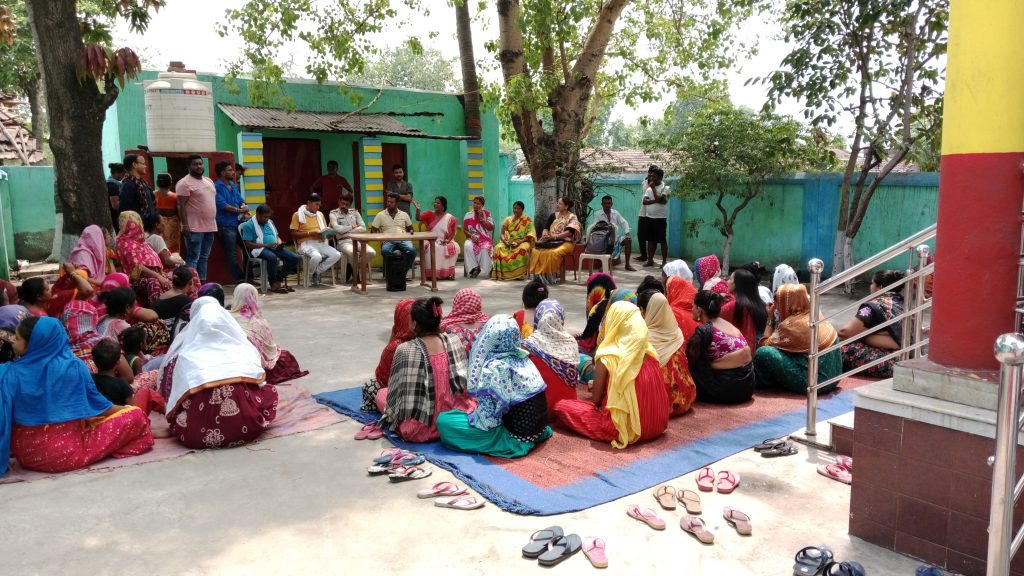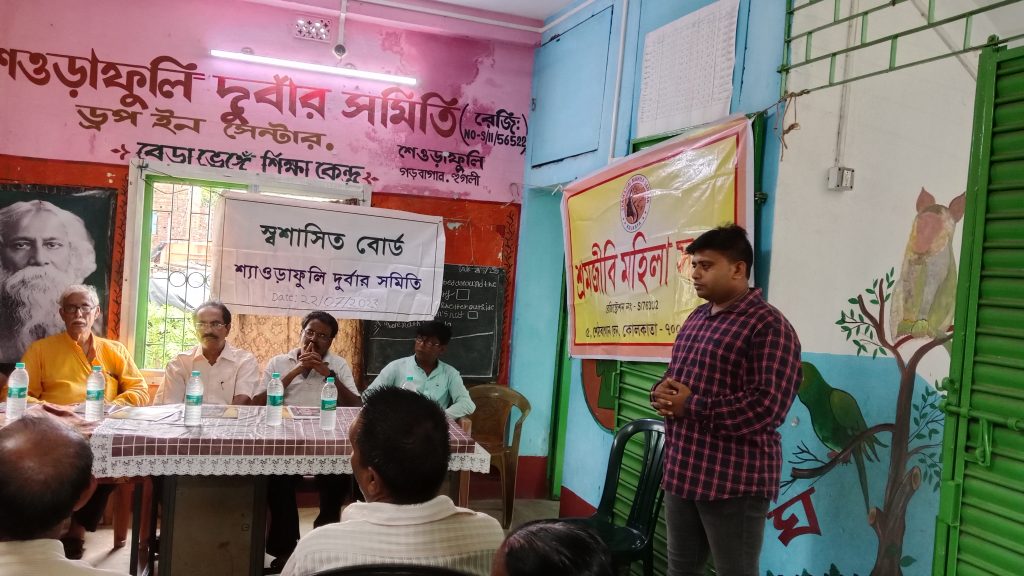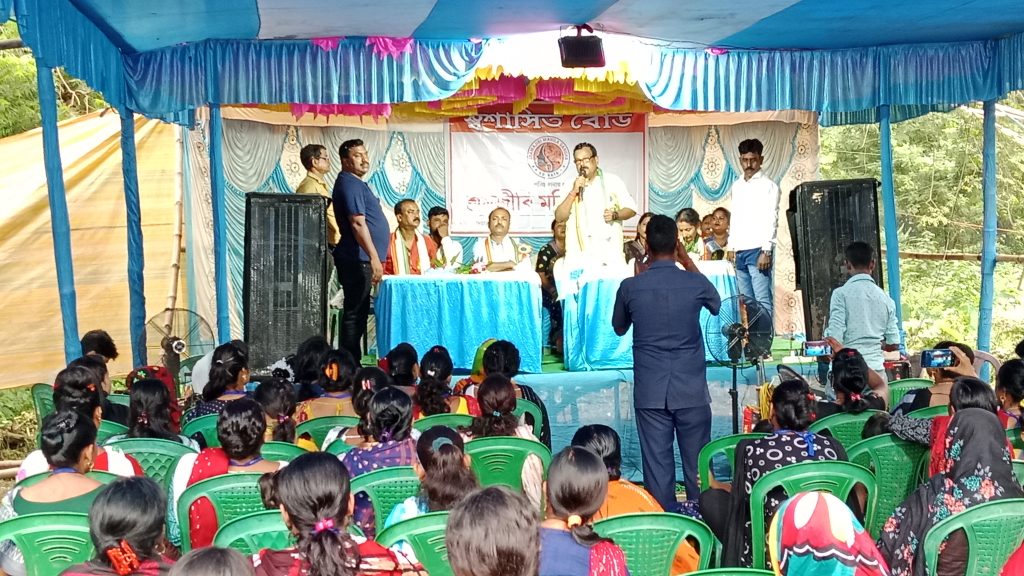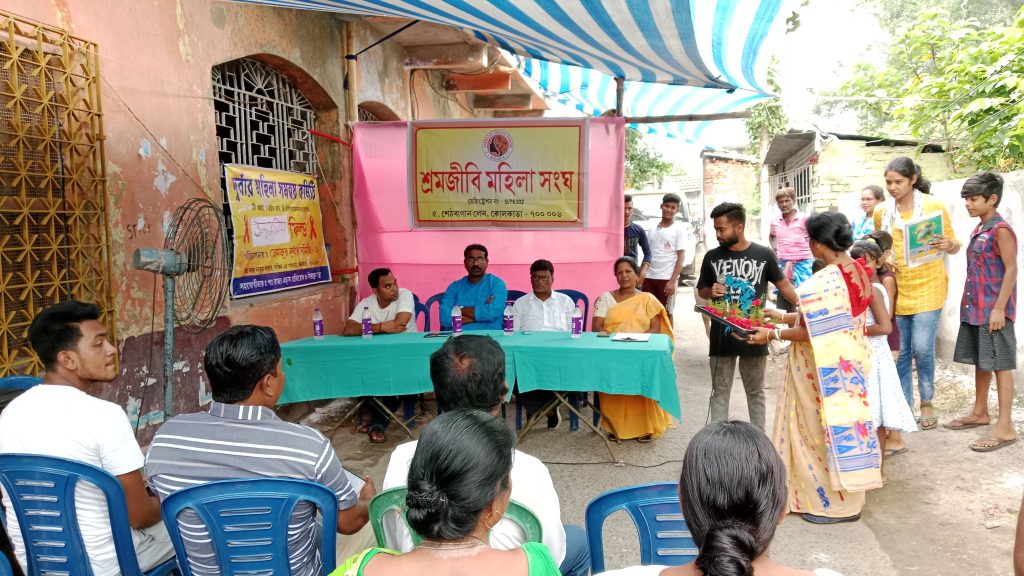Self Regulatory Board


Self Regulatory Board (SRB)
SELF REGULATORY BOARD (SRB)
- “Self Regulatory Board” – a community led structure, that deals with anti-trafficking activities in 30 sex work sites throughout West Bengal
- Remove all criminal activities surrounding sex trade, stop entry of minor girls and unwilling women into sex trade
- Help them to return home or find alternative jobs
- Some NGOs like Ashodaya, adopted the SRB model of Durbar to prevent trafficking in sex work sites in Mysore, Karnataka
DMSC sees sex work as a contractual service, negotiated between consenting adults. The organization is against any force exercised on sex workers, be it by clients, brothel keepers, room owners, pimps, local goons, the police or traffickers. Following their principle objective to dissociate sex work from all criminal associations, DMSC fights for atrocities against the sex workers perpetrated by local goons in addition to state mediated atrocities primarily steered by the law enforcers. To institutionalize the right based work with an objective to reduce incidence of violence including trafficking, DMSC constituted Self Regulatory Board (SRB) which is now functioning in 30 red light areas of West Bengal, India. These boards prevent entry of minors and unwilling women into sex work and act as principle arbitrator in cases of violation of sex workers’ rights. Till today through these SRBs, DMSC has rescued and reintegrated about 500 minors and unwilling women with their families or putting them in vocational training as per their choices.
SRB is already on its way to achieve remarkable success as a role model to prevent trafficking and upholding rights of marginalized communities like sex workers. This is on its way of becoming an internationally recognized model of anti-trafficking program worldwide.
Function of Self Regulatory Board:-
- Prevent entry of minors and unwilling women in the trade in addition to slavery and slavery-like practices.
- Control other exploitative practices within the sex trade.
- Arrange social security schemes (old age pension, health insurance, vocational training) for sex workers and their children.
- Support women, children of sex workers with alternative occupations if one wishes to leave sex work.
- Provide economic security through linking financial institutes.
- Ensure child protection mechanisms for children of sex workers and their access to education and other career building opportunities.
Total number of women and girls brought before the SRBs, and numbers and percentages identified as underage (<18 years) and unwillingly engaged in sex work (trafficked), by year (2009–2023)
| SRB identified and separated (Data from 2009 to 2023) | ||||
| Year | No of Girls / Women brought to SRB | Under Age Girls (below 18 years) | Unwilling Women | Wants to continue Sex Work |
| 2009 | 628 | 55 | 14 | 559 |
| 2010 | 692 | 58 | 11 | 623 |
| 2011 | 875 | 57 | 20 | 798 |
| 2012 | 907 | 38 | 23 | 846 |
| 2013 | 1134 | 43 | 27 | 1064 |
| 2014 | 1083 | 39 | 11 | 1033 |
| 2015 | 1051 | 30 | 7 | 1014 |
| 2016 | 1142 | 23 | 3 | 1116 |
| 2017 | 1030 | 13 | 3 | 1014 |
| 2018 | 858 | 6 | 2 | 850 |
| 2019 | 1235 | 5 | 0 | 1230 |
| 2020 | 820 | 6 | 0 | 814 |
| 2021 | 1280 | 4 | 0 | 1276 |
| 2022 | 1090 | 2 | 0 | 1088 |
| 2023 | 1020 | 1 | 0 | 1019 |
| TOTAL | 14845 | 380 | 121 | 14344 |


